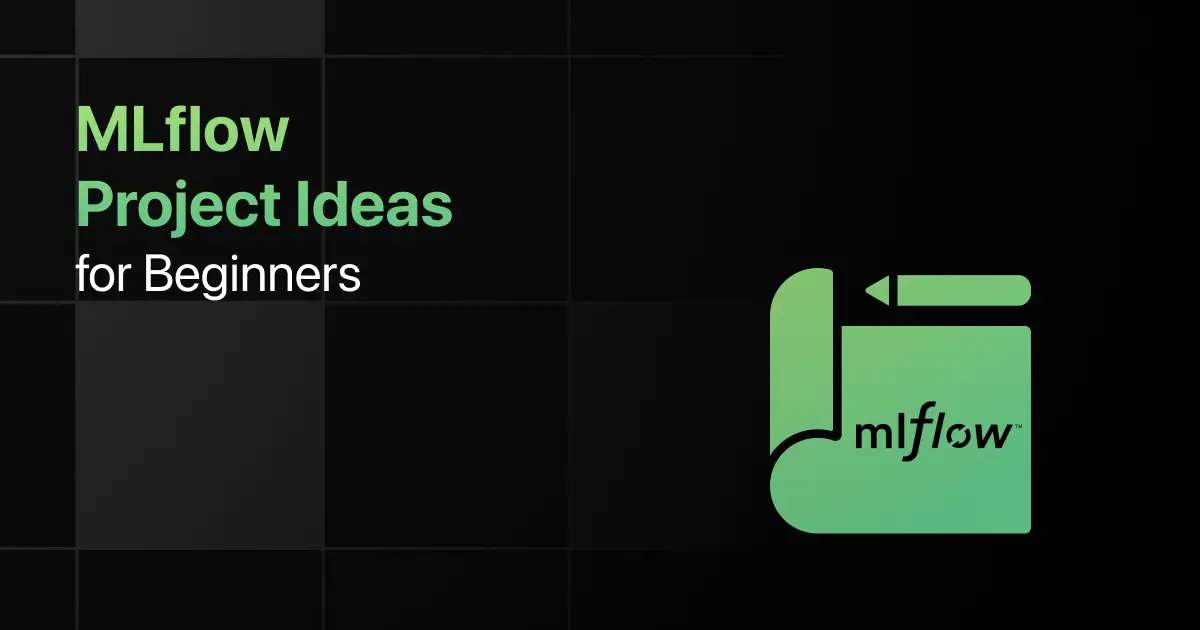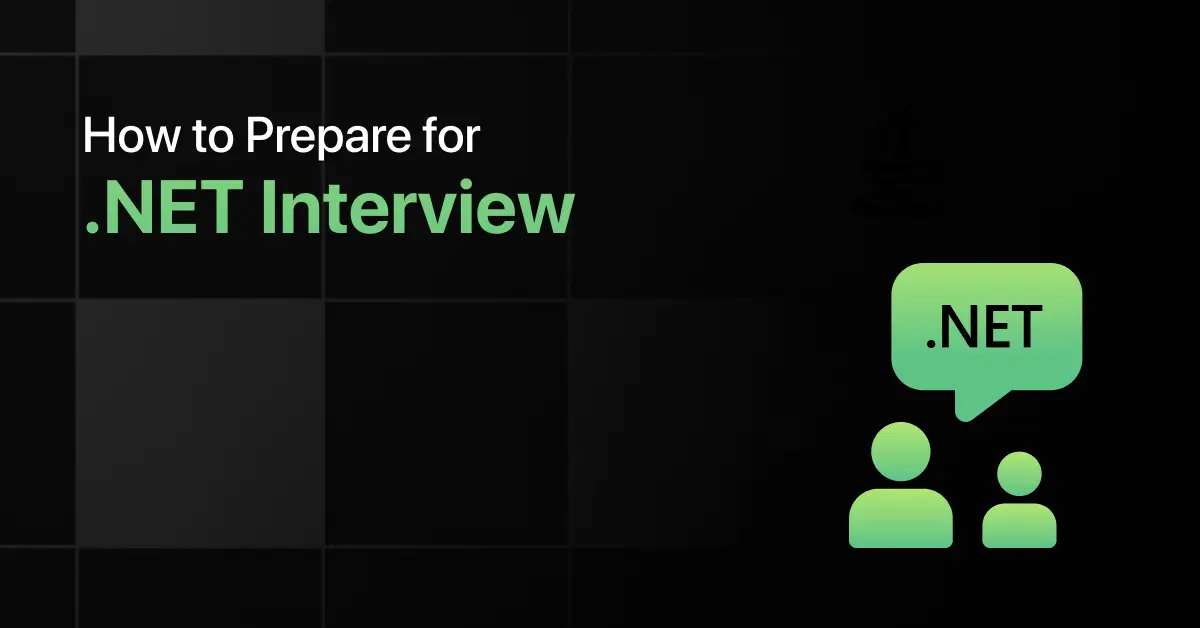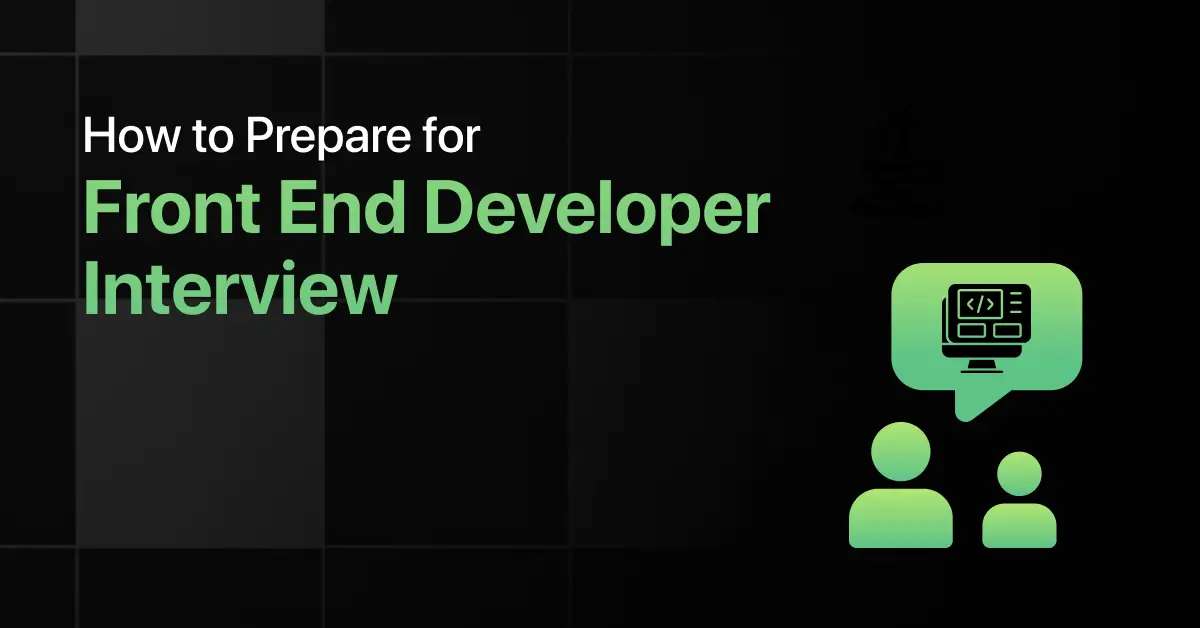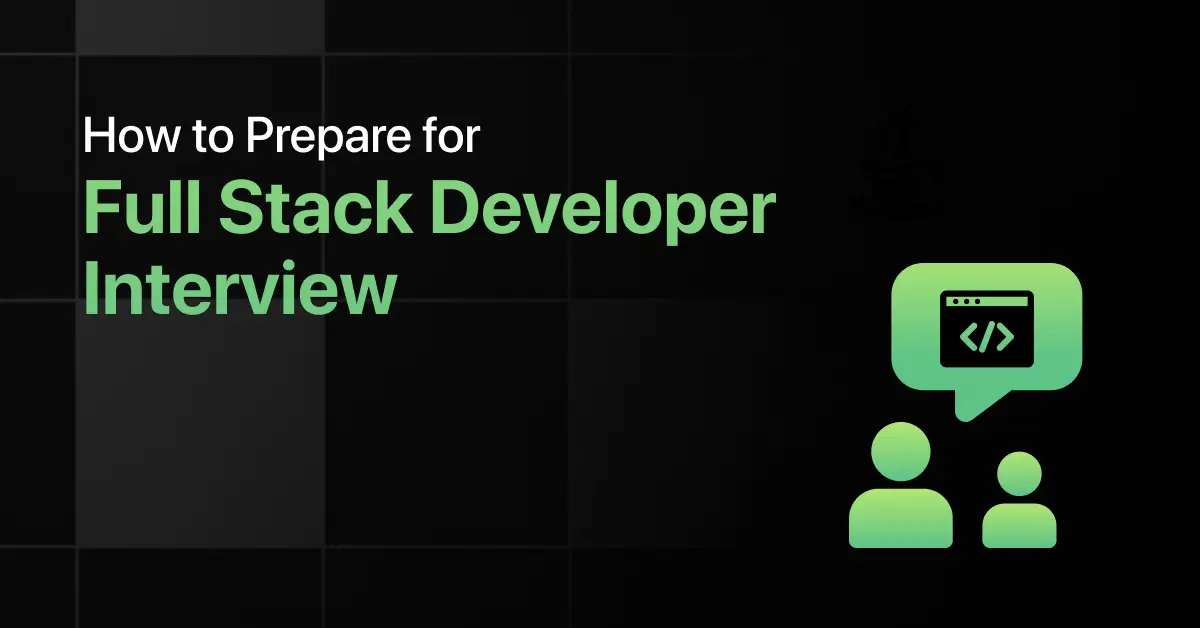Best MLflow Project Ideas for Beginners

Curious about how machine learning projects are tracked and managed? MLflow is a helpful tool that organizes your experiments and models in one place.
These MLflow project ideas for beginners will teach you how to manage workflows, log metrics, and keep track of your models with ease.
10 Beginner-Friendly MLflow Project Ideas – Overview
Here’s an overview of the 10 best MLflow Project Ideas for beginners:
| S.No. | Project Title | Complexity | Estimated Time | Source Code |
|---|---|---|---|---|
| 1 | Experiment Tracking for Linear Regression | Easy | 2 hours | Get Started |
| 2 | Model Versioning with MLflow | Easy | 3 hours | Get Started |
| 3 | Auto Logging for Sklearn Pipelines | Easy | 3 hours | Get Started |
| 4 | MLflow Projects Packaging | Medium | 4 hours | Get Started |
| 5 | MLflow + Flask Model Deployment | Medium | 5 hours | Get Started |
| 6 | Hyperparameter Tuning with MLflow & GridSearchCV | Medium | 4 hours | Get Started |
| 7 | End-to-End ML Workflow with MLflow | Hard | 6 hours | Get Started |
| 8 | MLflow with Dockerized Environment | Hard | 6 hours | Get Started |
| 9 | Multi-Model Comparison Dashboard | Medium | 5 hours | Get Started |
| 10 | MLflow on Cloud (e.g., Azure/GCP) | Hard | 8 hours | Get Started |
Top 10 MLflow Project Ideas for Beginners
Here are the top 10 simple MLflow project ideas for beginners:
1. Experiment Tracking for Linear Regression
This project is about building a system to track model metrics, parameters, and artifacts using MLflow for a linear regression task.
You’ll learn the fundamentals of experiment tracking, a core feature of MLflow mini projects.
Duration: 2 hrs
Project Complexity: Easy
Key Concepts Covered:
- Experiment tracking
- Parameter logging
- Metric visualization
Implementation Steps:
- Train a simple linear regression model
- Log metrics, parameters, and artifacts with MLflow
- Visualize runs in the MLflow UI
- Compare multiple runs
Required Pre-requisites:
- Python and scikit-learn basics
- Jupyter Notebooks
- ML fundamentals
Resources Required:
- MLflow local setup
- Sample dataset (e.g., housing prices)
- Python environment
Real-World Application:
- Track experiments across model versions
- Visual performance comparison
2. Model Versioning with MLflow
This project is about building a system to manage different versions of machine learning models using MLflow’s model registry.
You’ll learn how to track, register, and deploy models effectively, a common need in MLflow based projects.
Duration: 3 hrs
Project Complexity: Easy
Key Concepts Covered:
- Model tracking
- Versioning
- Model registry
Implementation Steps:
- Train and log a model
- Register multiple versions in MLflow
- Assign model stages
- Retrieve versions for deployment
Required Pre-requisites:
- Python basics
- Intro to ML models
- MLflow setup
Resources Required:
- MLflow
- Sample dataset
- Local ML environment
Real-World Application:
- Reproducibility in production
- Manage evolving models
3. Auto Logging for Sklearn Pipelines
This project is about building a system that logs models automatically using MLflow’s autologging feature.
You’ll learn how to integrate sklearn workflows into simple MLflow project ideas.
Duration: 3 hrs
Project Complexity: Easy
Key Concepts Covered:
- Autologging
- Pipeline automation
- Metric tracking
Implementation Steps:
- Create an sklearn pipeline
- Enable MLflow.sklearn.autolog()
- Train the model
- View and analyze logged data
Required Pre-requisites:
- Scikit-learn
- Logging basics
- MLflow
Resources Required:
- Python IDE
- MLflow installed
- Dataset (e.g., diabetes)
Real-World Application:
- Reduce manual logging
- Fast experiment setup
4. MLflow Projects Packaging
This project is about building a structured ML project that can be executed consistently across environments using MLflow Projects.
You’ll learn packaging and reproducibility essentials in MLflow project ideas for beginners.
Duration: 4 hrs
Project Complexity: Medium
Key Concepts Covered:
- MLflow Projects
- Reproducible runs
- Environment isolation
Implementation Steps:
- Structure code with MLproject file
- Define Conda or Docker environment
- Run project via MLflow CLI
- Track parameters and metrics
Required Pre-requisites:
- ML project basics
- Python packaging
- Conda
Resources Required:
- MLflow setup
- YAML environment file
- Versioned codebase
Real-World Application:
- Consistent deployment in teams
- Package portable ML solutions
5. MLflow + Flask Model Deployment
This project is about building a Flask API to serve an ML model tracked and registered with MLflow.
You’ll learn model serving workflows and REST integration.
Duration: 5 hrs
Project Complexity: Medium
Key Concepts Covered:
- REST API
- MLflow model loading
- Flask integration
Implementation Steps:
- Log model with MLflow
- Build Flask app
- Load model from MLflow Registry
- Serve prediction via endpoint
Required Pre-requisites:
- Flask basics
- ML model training
- REST APIs
Resources Required:
- Flask
- MLflow
- Sample model
Real-World Application:
- Real-time inference APIs
- ML model integration into apps
6. Hyperparameter Tuning with MLflow and GridSearchCV
This project is about building a system to log results of hyperparameter tuning using MLflow and GridSearchCV.
You’ll learn tracking performance across multiple model configs.
Duration: 4 hrs
Project Complexity: Medium
Key Concepts Covered:
- Hyperparameter tuning
- Search space logging
- Result comparison
Implementation Steps:
- Setup GridSearchCV
- Enable MLflow logging in each iteration
- Log best score and parameters
- Visualize results
Required Pre-requisites:
- Scikit-learn tuning
- MLflow logging
- Pandas
Resources Required:
- MLflow
- Dataset
- GridSearch setup
Real-World Application:
- Identify optimal model configs
- Analyze tuning outcomes
7. End-to-End ML Workflow with MLflow
This project is about building a complete machine learning pipeline from preprocessing to deployment using MLflow.
You’ll learn full-stack ML operations using MLflow project ideas.
Duration: 6 hrs
Project Complexity: Hard
Key Concepts Covered:
- Data preprocessing
- Model lifecycle
- Deployment
Implementation Steps:
- Preprocess dataset
- Train and log model
- Register and deploy model
- Visualize entire workflow
Required Pre-requisites:
- Full ML pipeline knowledge
- MLflow end-to-end usage
- Python
Resources Required:
- Clean dataset
- MLflow environment
- Jupyter or IDE
Real-World Application:
- ML system prototyping
- Rapid development
8. MLflow with Dockerized Environment
This project is about building a containerized ML project where all tracking and deployment is done via MLflow.
You’ll learn to use Docker with MLflow in scalable setups.
Duration: 6 hrs
Project Complexity: Hard
Key Concepts Covered:
- Docker
- Reproducibility
- Cloud compatibility
Implementation Steps:
- Create Dockerfile with MLflow
- Build and run container
- Execute training script inside container
- Log experiments to host MLflow
Required Pre-requisites:
- Docker basics
- ML project structure
- MLflow
Resources Required:
- Docker
- MLflow
- Sample training script
Real-World Application:
- Cloud deployment
- Consistent team workflows
9. Multi-Model Comparison Dashboard
This project is about building a dashboard to compare metrics and parameters of multiple ML models using MLflow’s tracking server.
You’ll learn custom visualization in MLflow based projects.
Duration: 5 hrs
Project Complexity: Medium
Key Concepts Covered:
Visualization
Multi-run analysis
Dashboard integration
Implementation Steps:
- Track multiple models in MLflow
- Extract data via MLflow API
- Build dashboard using Streamlit or Dash
- Show metrics and param plots
Required Pre-requisites:
- Streamlit/Dash
- MLflow tracking
- REST APIs
Resources Required:
- Python dashboarding library
- MLflow server
- Trained models
Real-World Application:
- Stakeholder insights
- Performance validation
10. MLflow on Cloud (e.g., Azure/GCP)
This project is about deploying MLflow in a managed cloud environment to track models across distributed pipelines.
You’ll learn remote tracking and cloud-native storage, a scalable approach to MLflow project ideas.
Duration: 8 hrs
Project Complexity: Hard
Key Concepts Covered:
- Remote tracking
- Cloud buckets
- MLflow URI setup
Implementation Steps:
- Setup cloud storage (e.g., Azure Blob, GCS)
- Configure MLflow backend store and artifact store
- Train and log models remotely
- Access via MLflow UI
Required Pre-requisites:
- Cloud services
- ML pipelines
- MLflow configuration
Resources Required:
- GCP/Azure account
- MLflow
- Remote dataset
Real-World Application:
- Team collaboration
- Production-grade MLflow
Final Words
MLflow projects for beginners give you a clear path to organizing and tracking machine learning work. They help you manage your models better and stay on top of your experiments.
Getting started with MLflow will make your machine learning journey more structured and efficient.
Explore More Project Ideas
- Python
- Java
- C Programming
- HTML and CSS
- React
- JavaScript
- PHP
- C++
- DBMS
- SQL
- Excel
- Angular
- Node JS
- DSA
- Django
- Power BI
- R Programming
- Operating System
- MongoDB
- React Native
- Golang
- Matlab
- Tableau
- .Net
- Bootstrap
- C#
- Next JS
- Kotlin
- jQuery
- React Redux
- Rust
- Shell Scripting
- Vue JS
- TypeScript
- Swift
- Perl
- Scala
- Figma
- RPA
- UI/UX
- Automation Testing
- Blockchain
- Cloud Computing
- DevOps
- Selenium
- Internet of Things
- Web Development
- Data Science
- Android
- Data Analytics
- Front-End
- Back End
- MERN Stack
- Big Data
- Data Engineering
- Full Stack
- MEAN Stack
- Artificial Intelligence
- Machine Learning
- Arduino
- Cyber Security
- Raspberry Pi
- Spring Boot
- NLP
- Embedded Systems
- Computer Network
- Game Development
- Flask
- Data Visualization
- Ethical Hacking
- Computer Vision
- AWS
- Data Mining
- Azure
- Network Security
- Microservices
- Augmented Reality
- Bioinformatics
- Virtual Reality
- Text Mining
- Unity
- Kubernetes
- Unreal Engine
- Terraform
- Linux
- Chatbot
- Deep Learning
- API
- Cloud Security
- Home Automation
- Quantum Computing
- FinTech
- Sentiment Analysis
- Recommendation System
- Robotics
- NodeMCU
- Large Language Models
- Penetration Testing
- Google Cloud Platform
- Edge Computing
- Pattern Recognition
- ElasticSearch
FAQs
Some easy MLflow project ideas for beginners include tracking linear regression experiments, logging model metrics, and managing basic ML pipelines.
MLflow project ideas are important for beginners because they teach how to organize and monitor machine learning workflows effectively.
Beginners can learn experiment tracking, model versioning, and reproducibility from MLflow project ideas.
A recommended MLflow project for someone with no prior programming experience is using pre-written Jupyter notebooks to log simple ML model parameters and metrics.
It typically takes around 5 to 10 hours to complete a beginner-level MLflow project, depending on the setup and use case.
Related Posts


How to Prepare for .Net Interview
Are you preparing for a .NET interview but not sure which topics to prioritize? Many candidates struggle to balance C# fundamentals, …
Warning: Undefined variable $post_id in /var/www/wordpress/wp-content/themes/placementpreparation/template-parts/popup-zenlite.php on line 1050








